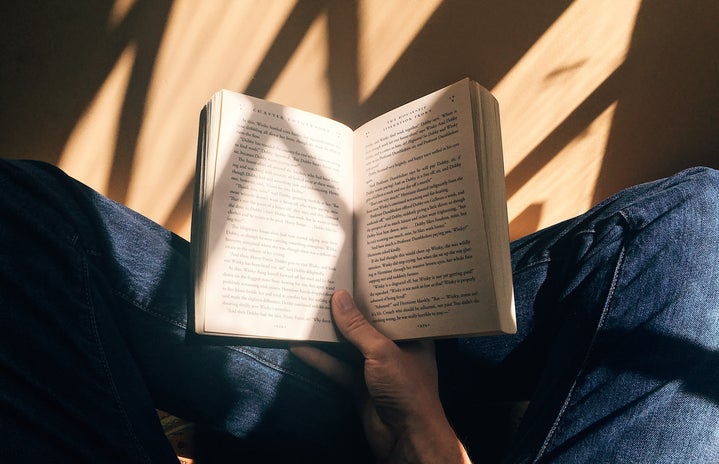How long have you been teaching for DePauw? I’m more than half-way through my 33rd year—I arrived in the fall of 1990, and I had taught for 17 years before then, so by next August I will have taught a total of 50 years.
Do you remember your first day teaching here? What was it like? Have things changed since? Yes, the campus is very different from what it was in 1990. The Center for Contemporary Media was still under construction; the GCPA, then known as the PAC or Performing Arts Center, was much smaller than it is now in its renovated form; Julian and the U.B. were much smaller buildings, too, than they are now––the earlier Julian, simply known as the Science and Math building, had not a single window! Neither Olin nor Peeler nor Jordan nor Hoover existed; Emison, which housed Studio Art, was dilapidated; it had no classrooms, so the art historians used to teach in Asbury. Rector Village did not exist, either: on its site was the largest dorm on campus, Rector, which burned down in April 2002, the day before Honor Scholar senior theses were due. Classes then had completely different “time banks”—I’d never heard that term before—from the ones you know now. Classes met four times a week for 50 minutes each: my 9 a.m. class met on M, W, Th, F; my 10 a.m. class met on M, T, Th, F; my 1 p.m. class met on T, W, Th, F; For my second semester, my 8 a.m. class met on M, W, Th, F; my 11 a.m. class met on M, T, W, Th; my 9 a.m. class, as in the fall, met on M, W, Th, F. It took me a while to learn which day of the week was the one day that a particular time bank did not meet.
What was your education experience like growing up? I grew up in a French school in Beirut, Lebanon, from age 3 (pre-school, “maternelle”) to age 17 (end of senior year), so my schooling followed the French curriculum from preschool to twelfth grade (12th grade, in French, is “première” (literally, “first grade,” because French schools begin in douzième (literally, “twelfth grade”). I prepared for both the French and the Lebanese Baccalaureate exams, which gave me a liberal-arts education long before I began college. In first grade, I had begun taking Arabic, so it was my second language of instruction. By the time I began actually studying English in the seventh grade (“sixième”), I already knew the language because we spoke it at home and I was an avid reader in English thanks to my maternal aunt, a college librarian in NYC, who kept us well supplied with books as presents for our birthdays and Christmas. Throughout my childhood I also had a library card at the American library in Beirut.
What academic advice would you give to your students? Care about what you’re learning and go to the trouble of working hard even when you find the material difficult. Work especially hard on your writing because it will be the key to your success not only at DePauw but also in your post-DePauw lives. Coincidentally, this morning I received a sobering email from a former advisee, now a lawyer in Indianapolis, who had majored in English literature at DePauw. Here’s her key sentence: “Each year the quality of legal writing diminishes and it’s becoming quite a big problem.”
What personal advice would you give to your students? Take full advantage of your years in college. I’ve heard many alumni wish that they had not squandered opportunities that DePauw had made available to them during their years as college students.
What is the best part of the school year in your opinion? I loved different parts of the school year for different reasons: I love the start of each semester because it gives me the chance to meet new students and to catch up with ones I already know; I love the middle of the semester when students’ hard work begins to show results; I love the end of the semester when students themselves can see that their hard work has paid off. The end of a semester always feels bittersweet, of course, all the more so before seniors graduate, but I take comfort from the thought of keeping in touch with them via mail, email, visits—either on campus or elsewhere—and ever since Covid-19, through mini-reunions via Zoom.
Favorite color? Blue.
Favorite tea? Earl Grey (for black tea) and peppermint tea (for herbal tea).
Favorite book(s)? Too many to count, but they include Austen’s novels, Virginia Woolf’s Mrs. Dalloway and To the Lighthouse, Kazuo Ishiguro’s The Remains of the Day, Penelope Lively’s Moon Tiger, Jhumpa Lahiri’s Unaccustomed Earth, and many of Shakespeare’s plays. I could go on and on.
I began recommending Paul Kalanithis’s incandescent memoir, When Breath Becomes Air, as soon as I first read it in 2016, and I’m rereading it now because I plan to include it in my ENG 120 class this fall. A former advisee reported having “wept at the end” after reading it in a single day; she planned to reread it immediately. With a title indebted to Sir Philip Sidney’s friend Fulke-Greville and prose so “unforgettable” that, as Abraham Verghese notes, “Out of his pen he was spinning gold” (Foreword, xiv), Kalanithi charts his abrupt transformation from young neurosurgeon to cancer patient. Facing the idea of his own “finitude,” Kalanithi “began reading literature again” as a way to counter the “featureless wasteland” provided by science and statistics (148). Kalanithi’s B.A. and M.A. degrees in English Literature served him well in his effort to “translate . . . back into language” the experiences that his medical training had given him. As Lucy Kalanithi reports in her compelling epilogue after her husband’s death at age 37, “Paul faced each stage of his illness with grace––not with bravado or misguided faith that he would ‘overcome’ or ‘beat’ cancer but with an authenticity that allowed him to grieve the loss of the future he had planned and forge a new one” (219).
Favorite flower/plant? Hmm: various forms of spring flowers: crocuses (in New England), rhododendrons and cyclamens (in Lebanon), tulips and daffodils (in England), and redbud trees (in Indiana). I’m also attached to a rosemary plant that dates back to a former advisee’s wedding from nearly two years ago: although I have no green thumb, the rosemary from her reception is still thriving.
What is one thing someone has told you that has stuck with you your whole life? Never stop growing; trust yourself to do more than you think you can.
Anything else for the good of the whole? In the spring of the height of the pandemic when classes were cut short and we moved to Zoom for the last six weeks of the semester, faculty were asked to submit a video greeting to the graduating seniors. For whatever it may be worth, I will repeat what I wrote then: “As you leave DePauw, I wish you constant growth and renewal. No matter how many obstacles you encounter as you figure out your life’s calling and work to fulfill it, I hope that you will, as John Donne once put it, “endure / Vicissitude, and season, as the grass” and that, in an echo of Virginia Woolf’s title, each of you will find “a room of your own” in the world beyond Greencastle. Because you have helped to make DePauw what it is, you aren’t leaving it behind but taking it with you. This farewell, then, is less a goodbye than a reminder that we who feel privileged to have known you are cheering you on from afar and eager to stay in touch.”

